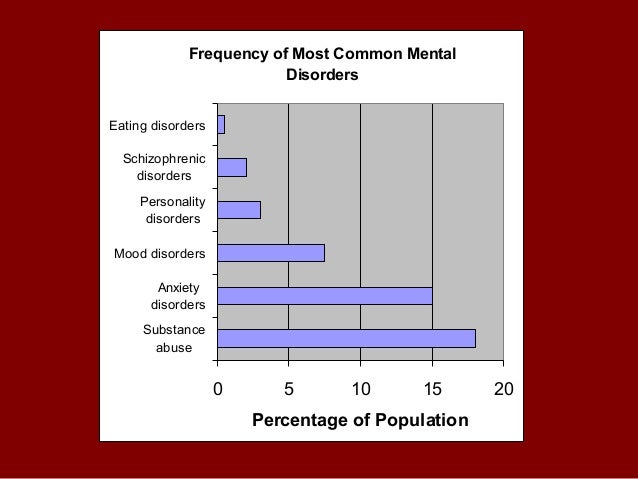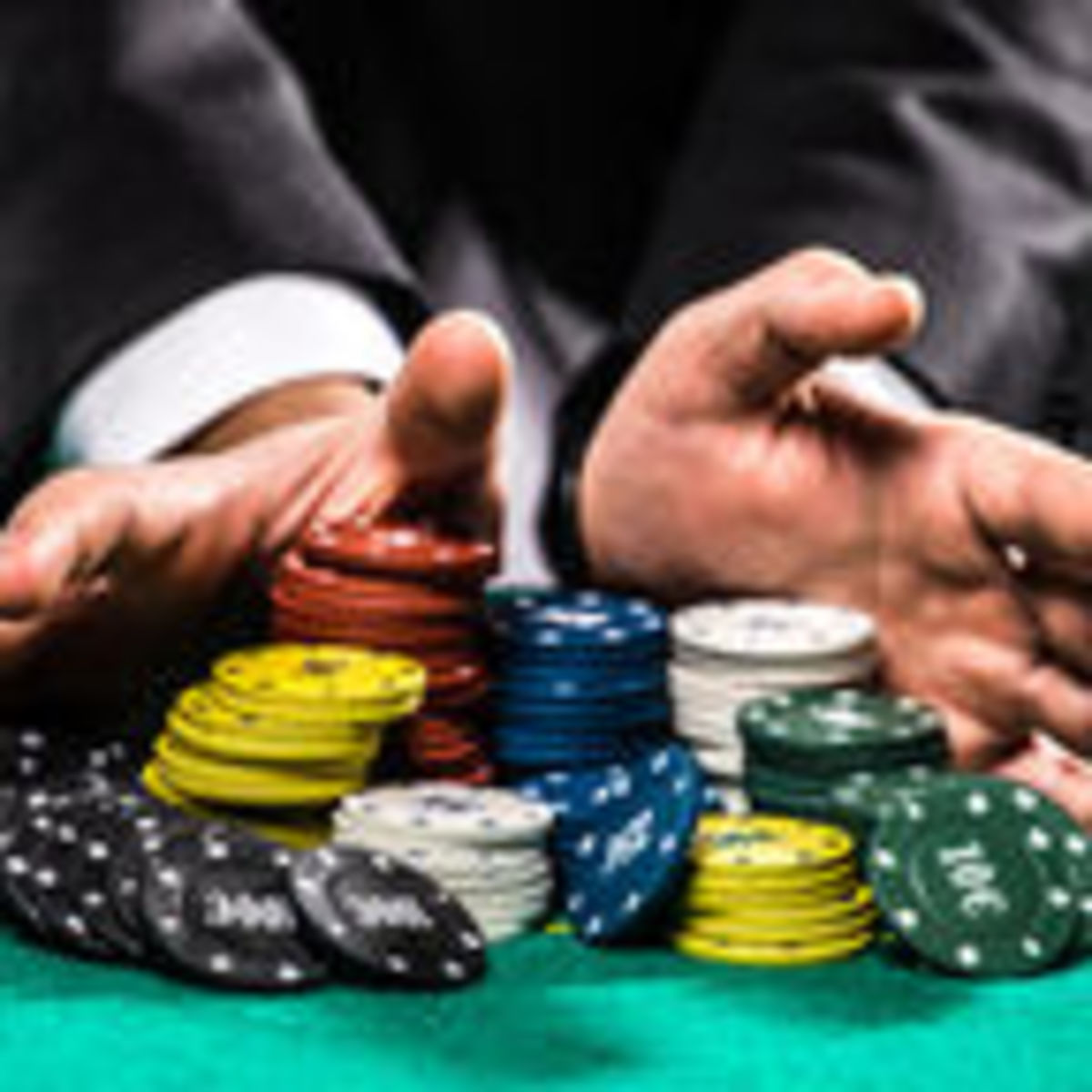Gambling Psychological Disorder
- 1DSM-III
- 1.2Differential Diagnosis
- 2DSM-IV
- 2.2Differential Diagnosis
- 3DSM-5
- 3.3Differential Diagnosis
Compulsive gambling, also called gambling disorder, is the uncontrollable urge to keep gambling despite the toll it takes on your life. Gambling means that you're willing to risk something you value in the hope of getting something of even greater value. Compulsive gambling can therefore develop through the social meaning and psychological relief that it offers. This is further compounded by the chemical changes in our brain that accompany these experiences. It is in fact artificial to separate these factors since they all occur simultaneously for the compulsive gambler.
DSM-III
Examples Of Psychological Disorders
In DSM-III, this disorder is called Pathological Gambling
Diagnostic Criteria
A. The individual is chronically and progressively unable to resist impulses to gamble.
B. Gambling compromises, disrupts, or damages family, personal, and vocational pursuits, as indicated by at least three of the following:
- arrest for forgery, fraud, embezzlement, or income tax evasion due to attempts to obtain money for gambling
- default on debts or other financial responsibilities
- disrupted family or spouse relationship due to gambling
- borrowing of money from illegal sources (loan sharks)
- inability to account for loss of money or to produce evidence of winning money, if this is claimed
- loss of work due to absenteeism in order to pursue gambling activity
- necessity for another person to provide money to relieve a desperate financial situation
C. The gambling is not due to Antisocial Personality Disorder.
Differential Diagnosis
Social gambling
In social gambling, gambling with friends is engaged in mainly on special occasions and with predetermined acceptable losses.
Manic and hypomanic episodes
During a manic or hypomanic episode loss of judgment and excessive gambling may follow the onset of the mood disturbance. When manic-like mood changes occur in Pathological Gambling they typically follow winning.
Antisocial Personality Disorder
Problems with gambling are often associated with Antisocial Personality Disorder and in Pathological Gambling antisocial behavior is frequent. However, in Pathological Gambling any antisocial behavior that occurs is out of desperation to obtain money to gamble when money is no longer available and legal resources have been exhausted. Criminal behavior is rare when the individual has money. Also, unlike the individual with Antisocial Personality Disorder, the individual with Pathological Gambling usually has a good work history until it is disrupted because of the gambling.
DSM-IV
In DSM-IV, this disorder is called Pathological Gambling
Diagnostic Criteria
A. Persistent and recurrent maladaptive gambling behavior as indicated by five (or more) of the following:
- is preoccupied with gambling (e.g., preoccupied with reliving past gambling experiences, handicapping or planning the next venture, or thinking of ways to get money with which to gamble)
- needs to gamble with increasing amounts of money in order to achieve the desired excitement
- has repeated unsuccessful efforts to control, cut back, or stop gambling
- is restless or irritable when attempting to cut down or stop gambling
- gambles as a way of escaping from problems or of relieving a dysphoric mood (e.g., feelings of helplessness, guilt, anxiety, depression)
- after losing money gambling, often returns another day to get even ('chasing' one's losses)
- lies to family members, therapist, or others to conceal the extent of involvement with gambling
- has committed illegal acts such as forgery, fraud, theft, or embezzlement to finance gambling
- has jeopardized or lost a significant relationship, job, or educational or career opportunity because of gambling
- relies on other to provide money to relieve a desperate financial situation caused by gambling
B. The gambling behavior is not better accounted for by a Manic Episode.
Differential Diagnosis
Social and professional gambling
Pathological Gambling must be distinguished from social gambling and professional gambling. Social gambling typically occurs with friends or colleagues and lasts for a limited period of time, with predetermined acceptable losses. In professional gambling, risks are limited and discipline is central. Some individuals can experience problems associated with their gambling (e.g., short-term chasing behavior and loss of control) that do not meet the full criteria for Pathological Gambling.
Manic Episodes and Antisocial Personality Disorder
Loss of judgment and excessive gambling may occur during a Manic Episode. An additional diagnosis of Pathological Gambling should only be given if the gambling behavior is not better accounted for by the Manic Episode (e.g., a history of maladaptive gambling behavior at times other than during a Manic Episode). Alternatively, an individual with Pathological Gambling may exhibit behavior during a gambling binge that resembles a Manic Episode. However, once the individual is away from the gambling, these manic-like features dissipate. Problems with gambling may occur in individuals with Antisocial Personality Disorder; if criteria are met for both disorders, both can be diagnosed.
DSM-5

Diagnostic Criteria
A. Persistent and recurrent problematic gambling behavior leading to clinically significant impairment or distress, as indicated by the individual exhibiting four (or more) of the following in a 12-month period:
- Needs to gamble with increasing amounts of money in order to achieve the desired excitement.
- Is restless or irritable when attempting to cut down or stop gambling.
- Has made repeated unsuccessful efforts to control, cut back, or stop gambling.
- Is often preoccupied with gambling (e.g., having persistent thoughts of reliving past gambling experiences, handicapping or planning the next venture, thinking of ways to get money with which to gamble).
- Often gambles when feeling distressed (e.g., helpless, guilty, anxious, depressed).
- After losing money gambling, often returns other day to get even ('chasing' one's losses).
- Lies to conceal the extent of involvement with gambling.
- Has jeopardized or lost a significant relationship, job, or educational or career opportunity because of gambling.
- Relies on others to provide money to relieve desperate financial situations caused by gambling.
B. The gambling behavior is not better explained by a manic episode.
Specify if:
- Episodic: Meeting diagnostic criteria at more than one time point, with symptoms subsiding between periods of gambling disorder for at least several months.
- Persistent: Experiencing continuous symptoms, to meet diagnostic criteria for multiple years.
Specify if:
- In early remission: After full criteria for gambling disorder were previously met, none of the criteria for gambling disorder have been met for at least 3 month but for less than 12 months.
- In sustained remission: After full criteria for gambling disorder were previously met, none of the criteria for gambling disorder have been met during a period of 12 months or longer.
Specify current severity:
- Mild: 4-5 criteria met.
- Moderate: 6-7 criteria met.
- Severe: 8-9 criteria met.
Specifiers
Severity is based on the number of criteria endorsed. Individuals with mild gambling disorder may exhibit only 4-5 of the criteria, with the most frequently endorsed criteria usually related to preoccupation with gambling and 'chasing' losses. Individuals with moderately severe gambling disorder exhibit more of the criteria (i.e., 6-7). Individuals with the most severe form will exhibit all or most of the nine criteria (i.e., 8-9). Jeopardizing relationships or career opportunities due to gambling and relying on others to provide money for gambling losses are typically the least often endorsed criteria and most often occur among those with more severe gambling disorder. Furthermore, individuals presenting for treatment of gambling disorder typically have moderate to severe forms of the disorder.
Differential Diagnosis
Nondisordered gambling
Gambling disorder must be distinguished from professional and social gambling. In professional gambling, risks are limited and discipline is central. Social gambling typically occurs with friends or colleagues and lasts for a limited period of time, with acceptable losses. Some individuals can experience problems associated with gambling (e.g., short-term chasing behavior and loss of control) that do not meet the full criteria for gambling disorder.
Manic episode
Loss of judgement and excessive gambling may occur during a manic episode. An additional diagnosis of gambling disorder should be given only if the gambling behavior is not better explained by manic episodes (e.g., a history of maladaptive gambling behavior at times other than during a manic episode). Alternatively, an individual with gambling disorder may, during a period of gambling, exhibit behaviors that resemble a manic episode, but once the individual is away from the gambling, these manic-like features dissipate.

Personality disorders
Gambling Disorder Treatment
Problems with gambling may occur in individuals with antisocial personality disorder and other personality disorders. If the criteria are met for both disorders, both can be diagnosed.
Other medical conditions
Some patients taking dopaminergic medications (e.g., for Parkinson's disease) may experience urges to gamble. If such symptoms dissipate when dopaminergic medications are reduced in dosage or ceased, then a diagnosis of gambling disorder would not be indicated.